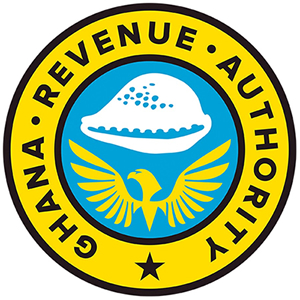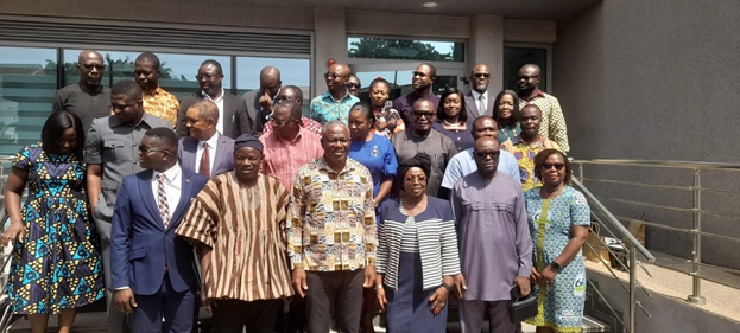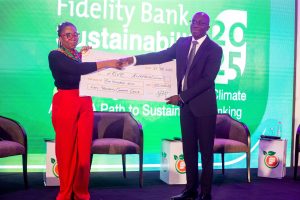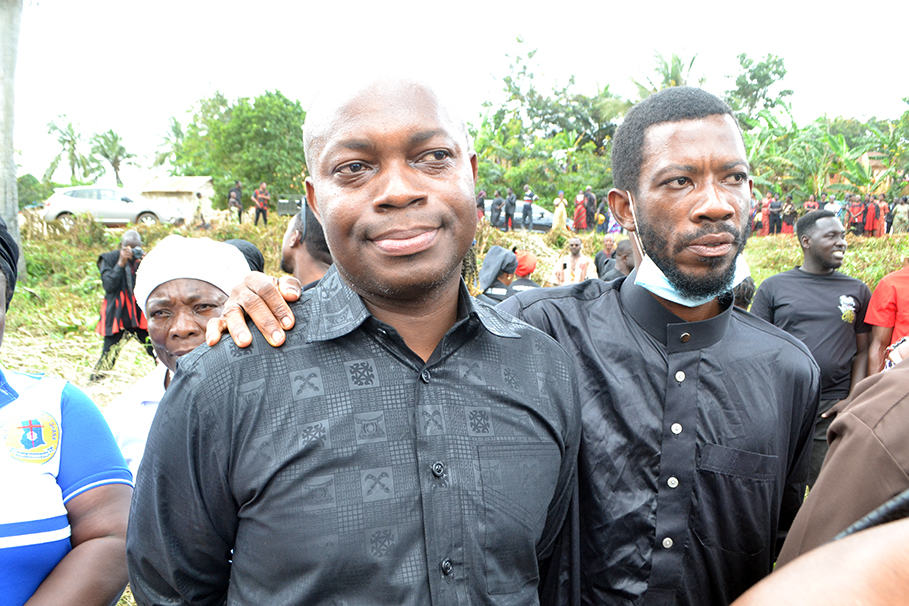
By Kizito CUDJOE
The Bui Power Authority (BPA) nearly doubled its profit target in 2024 despite a decline in revenue and a surge in receivables, revealing both the financial resilience and operational pressures of the state-owned hydropower producer, according to its 2024 financial statement.
BPA posted a net profit of US$64.5million, representing a 92 percent rise from its US$33.6million target even as revenue fell 11.1 percent to US$139.7million due to reduced water inflows that curtailed generation. Net worth climbed 9.2 percent to US$765.2million from US$700.8million in 2023.
However, receivables rose by 12.3 percent to US$1.2billion – a situation that weighed heavily on operations and highlighted liquidity challenges confronting the Authority.
The company generated 1,352 gigawatt-hours (GWh) of electricity in 2024, slightly above the planned 1,333 GWh. Of this, 1,348 GWh was supplied to the National Interconnected Transmission System (NITS).
The Bui Hydro Plant contributed 94.4 percent of total generation, Bui Solar PV plant 5.6 percent with Tsatsadu Micro Hydro Plant making up the remainder, reported Acting Chief Executive Officer Ing. Kow Eduakwa Sam.
He noted that the Authority implemented a proactive and well-structured maintenance regime to uphold plant reliability, efficiency and safety. “Preventive, corrective and predictive maintenance activities were systematically executed to optimise performance and minimise the risk of unplanned outages,” he said.
This maintenance strategy, he explained, enabled the Authority to achieve a Plant Availability Factor of 93 percent and a starting reliability of 99.07 percent.
BPA also deepened partnerships with both private and public sector actors, with a view to advancing new energy infrastructure development through Engineering, Procurement and Construction – Finance (EPC F) models.
“These efforts not only support national energy goals but also position the Authority for long-term sustainability,” he said.
Looking to 2025, Ing. Sam indicated that BPA will continue consolidating operational efficiency, expanding renewable generation and reinforcing financial sustainability.
“The coming year presents opportunities to build on our hydro-solar hybrid strategy, diversify revenue streams and accelerate project development in alignment with national energy objectives,” he said.
The Board Chairman of BPA, Ambassador Kwadwo Nyamekye-Marfo, acknowledged the Authority’s progress but pointed to significant liquidity challenges stemming from outstanding debt owed by its primary off-taker, the Electricity Company of Ghana (ECG).
The arrears, he stressed, have constrained BPA’s ability to procure essential spare-parts, execute capital projects and service loans linked to the Bui Hydroelectric Project.
He further cited environmental threats including illegal mining, unsustainable farming practices along the Bui reservoir – and recurring bushfires during the dry season – as additional risks to the Authority’s operations.
The Deputy Minister of Energy and Green Transition, Richard Gyan-Mensah, speaking on behalf of Minister John Jinapor said government recognises that some tariffs from newly commissioned solar plants are not sustainable.
He disclosed that a team is renegotiating existing Power Purchase Agreements (PPAs) to ensure affordability while safeguarding investor confidence, with “very good strides” already made. He emphasised that under new legislation, all future PPAs must undergo competitive procurement to align with government policy.
“As you expand your generation profile, be guided by government policy for competitive procurement of power, which is crucial to ensuring affordability for consumers and financial sustainability for the sector,” Mr. Gyan-Mensah said.
He assured that the ministry will collaborate with stakeholders to ease BPA’s liquidity constraints.
Also, Deputy Director-General of the State Interests and Governance Authority (SIGA) Millicent Atuguba, speaking on behalf of the Director-General, said BPA’s overall performance index has fluctuated in recent years.
“Between 2021 and 2022, the index rose from 2.876 to 3.518; primarily due to improvements in the financial and economic dimensions. This trend suggests that your overall performance hinges largely on addressing the issues driving these fluctuations,” she said.
She added that BPA is expected to become more efficient and profitable and urged management to ensure payment of dividends to government.
“By close of the 2025 financial year, we look forward to BPA demonstrating its commitment by paying dividends for the first time.”
The post Bui Power Authority posts US$64.5m profit, despite fall in revenue, surging unpaid bills appeared first on The Business & Financial Times.
Read Full Story










Facebook
Twitter
Pinterest
Instagram
Google+
YouTube
LinkedIn
RSS